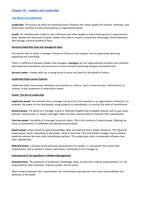Samenvatting
Summary Organisation & Management Week 6 (Chapters 10 and 11)
- Instelling
- Universiteit Van Amsterdam (UvA)
Comprehensive summary of chapters 10 and 11 of "Essentials of Contemporary Management" by Jones and George and of the corresponding articles that need to be studied for the exam. In English.
[Meer zien]





